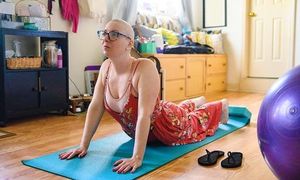For many aspiring homeowners in both Australia and the United Kingdom, the dream of stepping onto the property ladder seems to be slipping further out of reach. From the bustling streets of Sydney to the crowded neighborhoods of London, first-time buyers are grappling with sky-high prices, intense competition, and a maze of barriers that make purchasing a home feel more like a marathon than a milestone.
Take the case of a 21-year-old demolition worker from Sydney, who recently shared his frustrations with property app Coposit, as reported by Yahoo News Australia. Despite having managed to save $15,000, he confessed that buying a home in his twenties now feels “unattainable.” He lamented, “With everything going up, it just doesn’t look like it’s attainable.” His words echo the sentiment of many young Australians who find themselves locked out of the market by ever-increasing costs. The young tradie admitted, “Too hard. Buying a house just seems unattainable,” citing an “outrageous” cost of living as a major hurdle.
The numbers paint a stark picture. According to Domain, saving a 20% deposit for a median-priced $1.5 million home in Sydney can take a decade. In Brisbane and Melbourne, households can expect to spend nearly eight years saving for $1 million and $950,000 homes, respectively. It’s no surprise, then, that the average age of first-home buyers in Australia has climbed to around 36, as noted by research from UNSW. The Australian Housing and Urban Research Institute (AHURI) found a dramatic fall in home ownership rates for those aged 30 to 34, dropping from 65% among people born in the mid to late 1950s to just 45% for those born in the late 1980s. As Professor Stephen Whelan from the University of Sydney explained, “This fall in ownership rate has happened as house prices have nearly tripled, indicating that increasing house prices and falling affordability are associated with a delay in housing market entry for Australian households.”
Across the globe in London, the struggle is just as real, albeit with a different set of frustrations. Minreet Kaur, a 44-year-old carer living with her elderly parents, has saved diligently since she was 21 and amassed a £70,000 deposit. Yet, as she told The i Paper, she cannot even get past the stage of making offers. “The whole thing is impossible and so frustrating,” Kaur said. “It is really getting me down and causing me a lot of anxiety.” Her experience is a case study in the pitfalls of the UK’s home-buying system, which she called “shambolic.”
Despite viewing hundreds of properties over the last five years and putting in offers on about five houses, Kaur’s efforts have been stymied at every turn. Estate agents cancel viewings when other offers come in, sellers change their minds, and sometimes homes are sold to friends of the owner instead. “There have been other houses where we have put in offers only to be told that the seller has changed their mind and doesn’t want to sell their home anymore. And in other cases, we have had the estate agent saying they have had a higher offer, so they keep wanting us to up our offer, until the point we know where we can’t go any higher,” she explained. The lack of strict rules leaves buyers feeling like they must “play that whole game.”
Her worries are compounded by the rising cost of homes in London. Kaur is searching for a property around £650,000 that would be suitable for her and her parents, but as prices creep up, she fears her hard-earned deposit will be eroded before she can use it. “Whenever I think about it, it makes me tearful and I am worried the timing will mean it gets too expensive and I will never end up buying a house,” she admitted. The frustration has even led her family to consider moving abroad to find a better quality of life.
While individual stories like Kaur’s highlight the personal toll of the housing crisis, broader data from the UK reveal a complex market. According to new analysis by Yorkshire Building Society, first-time buyer (FTB) mortgage applications in the UK increased by 9.3% in the third quarter of 2025 compared to the same period last year, with 123,149 applications versus 112,630. Year-to-date, there have been 380,479 FTB applications—a rise of 11.4% over the previous year. However, this growth is slowing, down from a 12.4% increase in the previous quarter. Max Shepherd, group economist for Yorkshire Building Society, observed, “FTBs are continuing to show remarkable resilience despite ongoing macroeconomic and affordability challenges.” He credited regulatory changes, such as updates to stress-testing requirements and loan-to-income limits, for helping, but warned that “the growth of this important borrower group is showing signs of slowing amidst the headwinds they continue to face around high house prices and cost of living challenges which are preventing them from building deposits. This could be an early warning sign that they need more support from the Government and mortgage industry.”
Governments, for their part, are responding—though not always in ways that satisfy would-be homeowners. In the UK, the government has announced proposals to reform the home-buying system, aiming to make it quicker, cheaper, and easier. These include requiring property sellers and estate agents to provide more information upfront, reducing the need for buyers to carry out extensive surveys and searches, and potentially introducing binding contracts earlier in the process. The hope is to reduce the risk of sales falling through and to curb practices like gazumping, where another buyer swoops in with a higher offer after a deal is agreed.
Meanwhile, the political debate around stamp duty has heated up. Conservative party leader Kemi Badenoch recently pledged to ban stamp duty on primary homes if her party comes into power, calling it “a bad tax.” As reported by the Press Association, Badenoch argued, “We must free up our housing market, because a society where no one can afford to buy or move is a society where social mobility is dead.” However, experts caution that scrapping stamp duty may not be the panacea some hope for. Sarah Coles, head of personal finance at Hargreaves Lansdown, noted, “Having a tax bill when you buy a home doesn’t make the process any easier, but it’s not necessarily the biggest barrier someone faces when they buy and sell.” For first-time buyers, raising the deposit remains the “enormous challenge.” She pointed out that tools like the Lifetime ISA, which offers a 25% government bonus, are more valuable aids.
Others warn that abolishing stamp duty could have unintended consequences. Stuart Cheetham, chief executive of mortgage lender MPowered, said, “Scrapping stamp duty entirely would be very popular, and it would deliver a huge caffeine jolt to the sluggish property market. But there’s also a risk that it would drive up prices so fast that any savings for first-time buyers would soon be cancelled out.” Lucian Cook, head of residential research at Savills, echoed this, suggesting that the benefits of scrapping the tax could simply be absorbed into higher prices, with little impact on first-time buyer numbers.
As governments and industry leaders debate solutions, the reality for first-time buyers remains fraught with obstacles. Whether it’s the decade-long slog to save a deposit in Sydney or the exasperating “game-playing” of London’s property market, the challenges are as varied as they are daunting. For now, the hope is that reforms—if implemented thoughtfully—can offer some relief to those who still believe in the dream of home ownership, even as the odds seem stacked against them.






